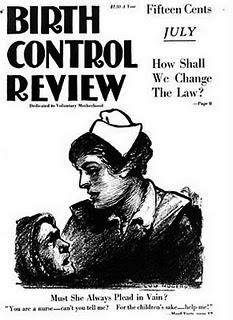National Birth Control League
National Birth Control League (NBCL) was an influential organization in the early 20th century United States that advocated for the legalization and accessibility of birth control. Founded in the context of the broader birth control movement in the United States, the NBCL played a pivotal role in challenging societal norms and legal restrictions related to family planning and reproductive rights.
History[edit | edit source]
The National Birth Control League was established in the early 1910s, a time when discussing or promoting birth control was considered obscene under the Comstock Laws. These laws, named after anti-vice activist Anthony Comstock, made it illegal to distribute, sell, or even educate the public about contraceptives. The NBCL emerged from the efforts of activists who sought to challenge these restrictions and advocate for the rights of women to access birth control information and devices.
Objectives and Activities[edit | edit source]
The primary objective of the NBCL was to promote the understanding and acceptance of birth control as a means to improve the health and welfare of families, and to support women's rights to control their own bodies. The league engaged in various activities to achieve its goals, including:
- Educating the public about birth control through lectures, pamphlets, and publications.
- Lobbying for the repeal or reform of laws that restricted access to birth control information and devices.
- Supporting research into safe and effective contraceptive methods.
- Establishing clinics to provide birth control advice and contraceptives to women, often in defiance of existing laws.
Impact and Legacy[edit | edit source]
The efforts of the National Birth Control League contributed significantly to the gradual shift in public opinion and legal standards regarding birth control throughout the 20th century. The organization's advocacy work laid the groundwork for future legal victories, including the landmark Griswold v. Connecticut case in 1965, which effectively legalized birth control for married couples nationwide.
The NBCL also influenced the formation of other birth control and reproductive rights organizations, including the American Birth Control League, which later became Planned Parenthood Federation of America, one of the largest and most prominent reproductive health organizations in the United States.
See Also[edit | edit source]
- Margaret Sanger
- Birth control movement in the United States
- Comstock Laws
- Planned Parenthood Federation of America
Navigation: Wellness - Encyclopedia - Health topics - Disease Index - Drugs - World Directory - Gray's Anatomy - Keto diet - Recipes
Search WikiMD
Ad.Tired of being Overweight? Try W8MD's physician weight loss program.
Semaglutide (Ozempic / Wegovy and Tirzepatide (Mounjaro / Zepbound) available.
Advertise on WikiMD
WikiMD is not a substitute for professional medical advice. See full disclaimer.
Credits:Most images are courtesy of Wikimedia commons, and templates Wikipedia, licensed under CC BY SA or similar.Contributors: Prab R. Tumpati, MD

